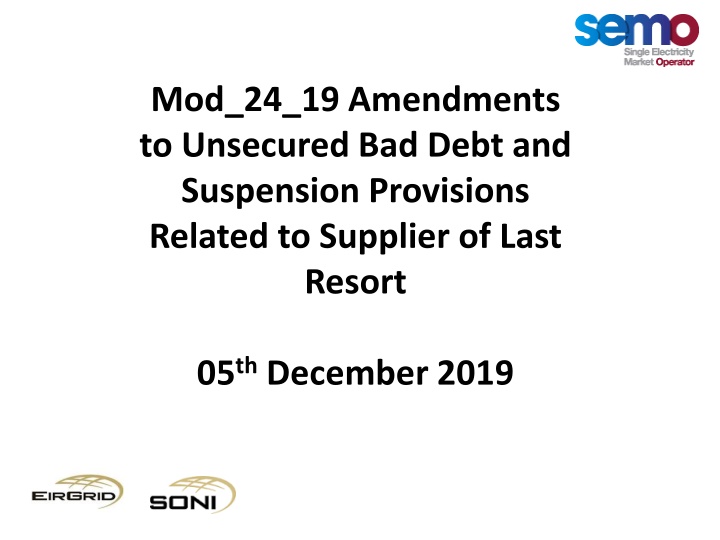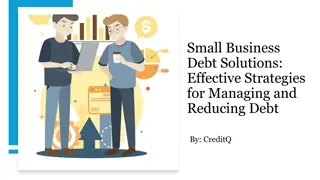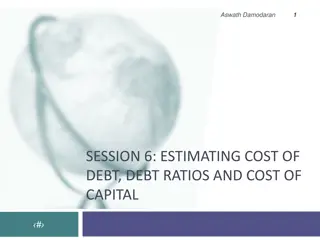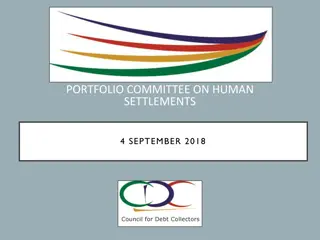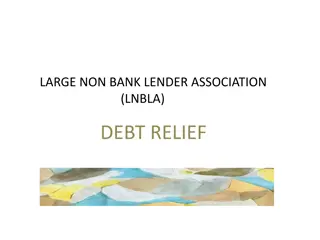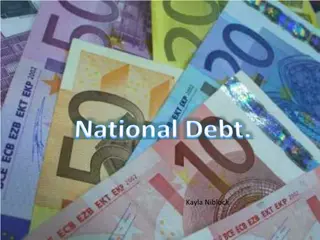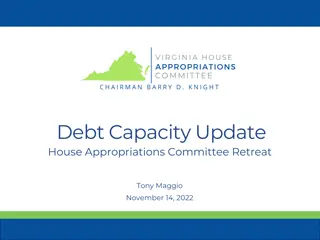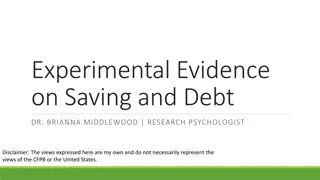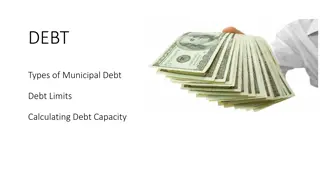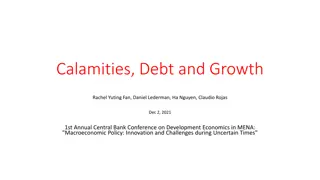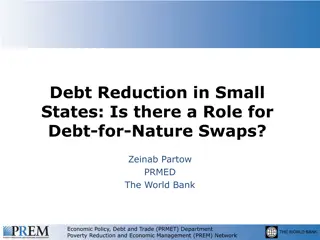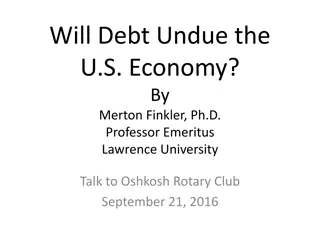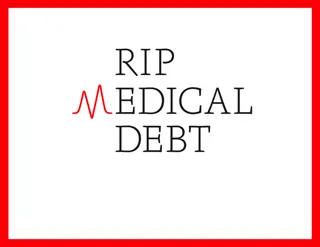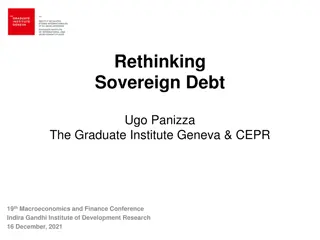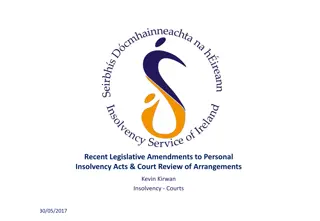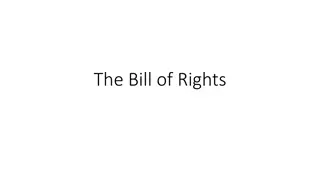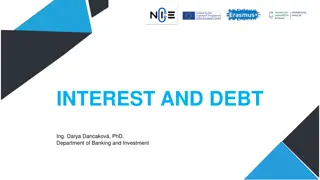Amendments to Unsecured Bad Debt Provisions
This proposal outlines amendments related to the treatment of unsecured bad debt when a Supplier of Last Resort (SoLR) is unable to transfer all metered volumes on time. It addresses scenarios where debts remain with the defaulting supplier and proposes changes to the existing processes for handling unsettled amounts. The aim is to clarify the treatment of such debts and ensure proper accounting and repayment by the SoLR.
Download Presentation

Please find below an Image/Link to download the presentation.
The content on the website is provided AS IS for your information and personal use only. It may not be sold, licensed, or shared on other websites without obtaining consent from the author.If you encounter any issues during the download, it is possible that the publisher has removed the file from their server.
You are allowed to download the files provided on this website for personal or commercial use, subject to the condition that they are used lawfully. All files are the property of their respective owners.
The content on the website is provided AS IS for your information and personal use only. It may not be sold, licensed, or shared on other websites without obtaining consent from the author.
E N D
Presentation Transcript
Mod_24_19 Amendments to Unsecured Bad Debt and Suspension Provisions Related to Supplier of Last Resort 05th December 2019
Summary Information This proposal aims to provide for a scenario where a Supplier of Last Resort (SoLR) is invoked but the Metered Volumes which are to be transferred are not all transferred to the SoLR on time for Initial Settlement; Where this occurs these volumes will remain against the original defaulting Supplier for a period while the retail market operators apply their respective Change of Supplier processes; As a result there will be an uncollateralised Default against the original Supplier which would be treated as an Unsecured Bad Debt (UBD) and therefore socialised among Generator Units based on their Metered Quantity; These monies will be paid in due course by the SoLR when resettlement billing occurs after the volumes have been transferred; This proposal seeks to retain the existing UBD/short-pay mechanism and make additional provisions for the scenario where a transfer to SoLR has occurred.
Summary Information This Proposal seeks to provide for accounting of such monies to transfer to the SoLR, so that it is no longer a Default against the Defaulting Supplier but rather remains an UBD, by the Code definition only, which becomes a debt owing by SoLR and also the SoLR is not therefore considered to be a Defaulting Participant for these monies so that those implications do not apply; The Proposal seeks to: Provide for resettlement interest as opposed to the more onerous default interest to apply to such monies where such a transfer occurs; Remove obligation on the Market Operator (MO) to withhold/deduct/offset any amounts due to the SoLR in this scenario as it is not a Defaulting Participant; Require the MO to carry out additional Settlement Reruns where such an UBD is not recovered by the final timetabled Settlement Rerun; Ensure that socialisation of UBD is retained where a transfer to SoLR occurs and also that this is repaid once recovered.
Justification and Objectives Furthered This proposal is intended to ensure clarity in the process for the treatment of monies owing which are subject to transfer to an SoLR but the associated Metered Quantities won t be transferred on time for Initial Settlement; The current process under the Code would treat this as though it remains a Shortfall against the original Defaulting Participant resulting in Default Interest applying and obliging the MO to pursue recovery and would also not allow for additional settlement reruns to recover from SoLR; The intention is to retain the short pay treatment while amending the accounting of the debt and its recovery and interest treatments; This proposal aims to further the Code objective related to efficient operation of the SEM in a financially secure manner by ensuring that appropriate provisions are in place to cater for any lag between an SoLR even being called and Metered Quantities being transferred.
Legal Drafting Extracts G.2.6.3 Default Interest shall accrue from the Payment Due Date on the amount of any Shortfall and Unsecured Bad Debt in accordance with the Code, excepting where such a Shortfall or Unsecured Bad Debt relates monies which are subject to transfer to, and are therefore a debt owing by, the Supplier of Last Resort, as set out in paragraph G.2.7.2A, in which case Settlement Rerun Interest shall apply as set out in Agreed Procedure 15 section 2.6.1. ... ... ... Where an Unsecured Bad Debt relates to monies due, which are subject to transfer to the Supplier of Last Resort, it shall no longer be a Shortfall but shall become an Unsecured Bad Debt which is a debt owing by the Supplier of Last Resort to the Market Operator as trustee and agent for all Participants beneficially interested therein as provided for in the Code, pro-rated according to their individual respective proportionate entitlements in the Unsecured Bad Debt concerned and on the trusts provided for in paragraph G.1.6.1. The Market Operator shall be entitled, as trustee and agent for all Participants beneficially interested therein as aforesaid, to carry out a Settlement Rerun in order to recover the amount of the Unsecured Bad Debt (as applicable). G.2.7.2A G.2.7.2B The Market Operator shall procure that additional Settlement Reruns for the relevant period shall be performed, if required to recover monies relating to an Unsecured Bad Debt which is subject to transfer to the Supplier of Last Resort, where these have not been recovered by the final Timetabled Settlement Rerun.
